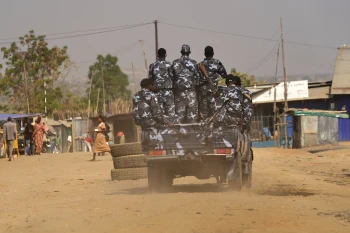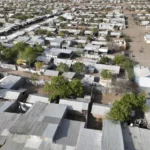As South Sudan grapples with relentless civil strife, the U.S. government’s recent revocation of visas for certain South Sudanese officials underscores a significant diplomatic shift in response to ongoing human rights abuses. This move reflects America’s attempt to pressure the South Sudanese government amid a humanitarian crisis that has only deepened with violence and instability.
Since gaining independence from Sudan in 2011, South Sudan has been embroiled in a civil war that erupted in December 2013. The conflict has led to the deaths of hundreds of thousands and displaced millions from their homes. According to the United Nations, approximately 7.76 million people—over half the population—are in need of humanitarian assistance. Continuous clashes between government forces and various opposition groups have exacerbated the already dire situation, leaving communities devastated and in a continuous state of fear.
In response to this bleak landscape, the U.S. State Department has acted decisively in recent months, revoking visas for individuals deemed responsible for undermining peace efforts and committing human rights violations. This includes top officials implicated in corruption, violence against civilians, and stalling the peace process that was envisioned under the 2018 Revitalized Peace Agreement. The U.S. has also vocally condemned the South Sudanese government for its lack of accountability and for failing to protect its citizens.
In a statement, U.S. Secretary of State Antony Blinken reaffirmed America’s commitment to hold accountable those responsible for perpetuating violence and impeding humanitarian efforts. “The United States will continue to use all tools at our disposal to push for accountability and to support the people of South Sudan,” he stated. This seems to reflect a broader strategy of using diplomatic measures to influence nations embroiled in turmoil, prioritizing human rights and the welfare of civilians over conventional alliances.
The revocation of visas serves not only as a punishment but also aims to signal to the South Sudanese leadership that the international community is watching. This approach aligns with a growing consensus among human rights organizations that emphasizes the need for punitive actions against violators to deter further abuses. Reports of violence, including ethnic killings, gender-based violence, and attacks on aid workers, highlight the continuing repercussions of the civil war.
However, critics argue that revoking visas may not be effective in achieving lasting change. Some South Sudanese officials view these actions as an external interference in domestic affairs, potentially igniting nationalist sentiments that could further entrench the power dynamics within the country. Moreover, the challenge lies in the fact that many officials who face visa revocations may possess little concern for the implications of being barred from entering the U.S., given their entrenched positions in the domestic political landscape.
While the U.S. grapples with the balance between diplomatic pressure and the complexities of international relations, it remains clear that the humanitarian situation in South Sudan calls for urgent attention. Continuous support for peace initiatives and humanitarian aid is critical. As the conflict continues to disrupt the lives of millions, the consequences of inaction could mean prolonged suffering for the South Sudanese populace.
In conclusion, the U.S. visa revocation serves as a potent symbol of condemnation against the backdrop of a devastating civil war. As South Sudanese officials face increased international scrutiny, the hope remains that accountability and pressure can lead to a renewed commitment to peace and stability in a nation whose potential continues to be overshadowed by violence and despair.
Email Us on editorial@nnafrica.com













